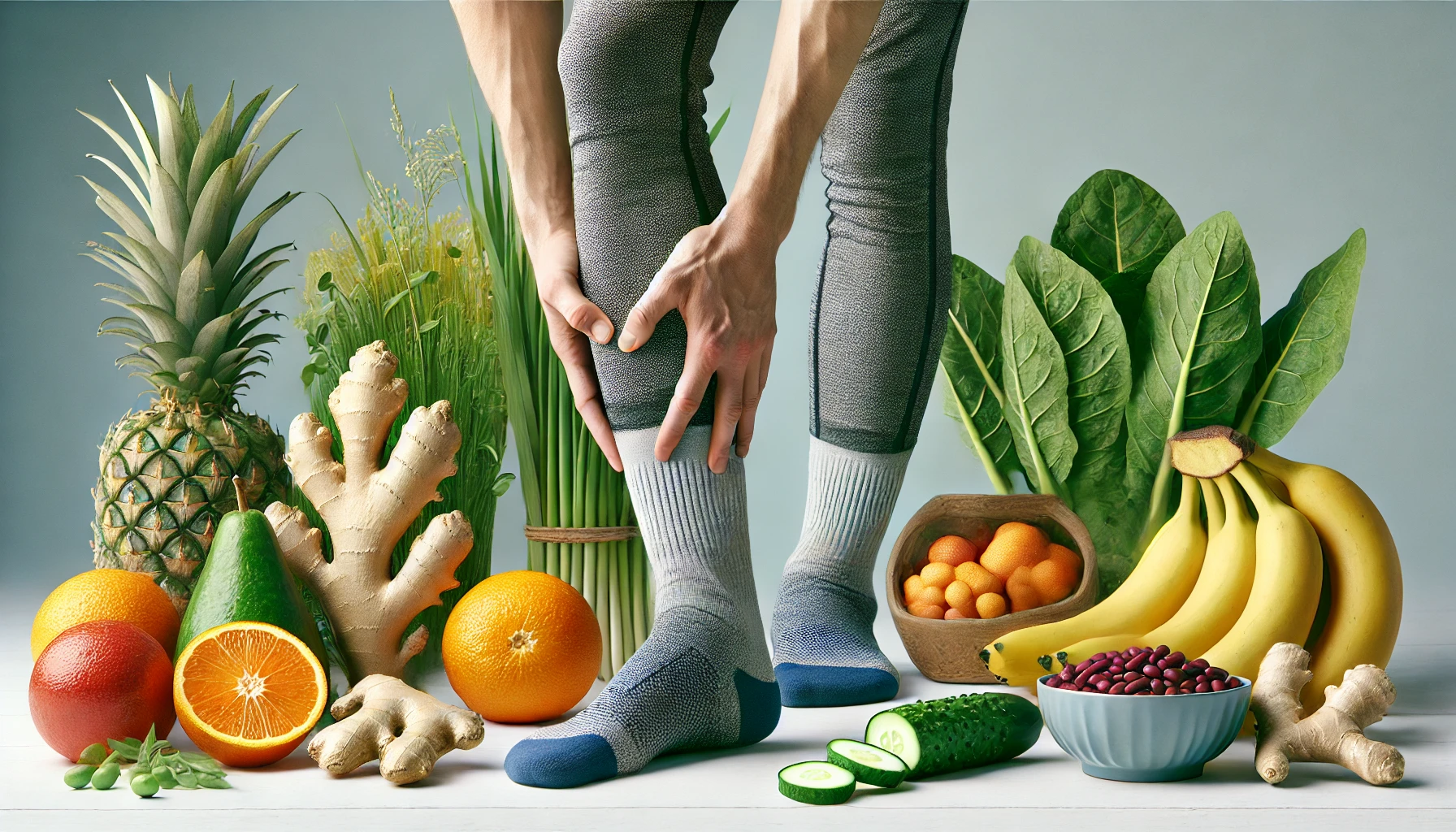Health Notice: This article was written using the Consensus AI Academic Search Engine. It is intended solely for informational purposes and should not be considered medical advice. Always consult a licensed healthcare provider for diagnosis, treatment, or medical guidance. Please refer to the full Disclaimer at the end of this article.
Incorporating certain foods and supplements into the diet can be an effective strategy for managing muscle cramps. Ginger, citric acid, pickle juice, TRP channel activators, watermelon juice, and vitamins E and C have all shown promise in reducing the severity and frequency of muscle cramps. As always, it is advisable to consult with a healthcare provider before starting any new dietary regimen, especially for individuals with underlying health conditions.
By understanding and utilizing these natural remedies, individuals can potentially alleviate the discomfort associated with muscle cramps and improve their overall quality of life.
Muscle cramps are sudden, involuntary contractions of one or more muscles that can cause significant discomfort and pain. They can occur during physical activity or even at rest, and are often experienced by athletes, the elderly, and individuals with certain medical conditions. While various treatments exist, dietary interventions have shown promise in alleviating muscle cramps. This article explores several foods and their potential benefits in reducing muscle cramps.
Ginger
Ginger (Zingiber officinale) has been traditionally used for its anti-inflammatory properties. Recent studies have investigated its effectiveness in reducing muscle pain and cramps. A study involving 74 volunteers demonstrated that daily supplementation with 2 grams of either raw or heat-treated ginger for 11 days resulted in moderate-to-large reductions in muscle pain following exercise-induced muscle injury. The study concluded that ginger’s hypoalgesic effects could be beneficial for individuals experiencing muscle cramps due to its pain-relieving properties1.
Citric Acid
Citric acid, commonly found in citrus fruits, has been empirically known to prevent sports-related and nocturnal muscle cramps. A randomized clinical trial explored its effectiveness in older adults suffering from nocturnal muscle cramps. The study highlighted that citric acid could be a safe and effective alternative to quinine, which was previously used for this purpose but is now banned for off-label prescription by the FDA2.
Pickle Juice
Pickle juice has gained popularity as a remedy for muscle cramps, particularly among athletes. A randomized controlled trial involving 82 patients with cirrhosis found that consuming pickle juice at the onset of cramps significantly reduced cramp severity compared to tap water. The study suggested that the acetic acid in pickle juice might play a role in this beneficial effect, making it a viable option for those seeking immediate relief from muscle cramps3.
TRP Channel Activators
Transient receptor potential (TRP) channel activators, found in various natural food extracts, have shown potential in reducing the intensity and duration of muscle cramps. A study involving 20 volunteers demonstrated that consuming a mixture of TRPA1 and TRPV1 activators significantly attenuated the intensity-duration profile of voluntarily induced muscle cramps. This suggests that foods containing these activators, such as spicy foods, could help manage muscle cramps4.
Watermelon Juice
Watermelon juice, rich in the amino acid l-citrulline, has been studied for its potential to reduce muscle soreness and cramps. An experiment with athletes showed that consuming 500 mL of natural watermelon juice or enriched watermelon juice helped reduce muscle soreness and recovery heart rate after intense exercise. The study indicated that l-citrulline’s bioavailability is higher when consumed in its natural matrix, making watermelon juice a functional drink for muscle cramp relief5.
Vitamins E and C
Vitamins E and C have been investigated for their role in reducing muscle cramps, particularly in haemodialysis patients. A placebo-controlled, double-blind study involving 60 patients found that supplementation with vitamins E, C, or their combination significantly decreased the frequency and intensity of muscle cramps compared to placebo. The combination of these vitamins was particularly effective, suggesting that they could be beneficial for individuals experiencing frequent muscle cramps6.
Disclaimer
The content in this blog post was generated using Consensus, an AI-powered academic search engine, and is based on publicly available scientific literature. While we strive to provide accurate, up-to-date, and well-researched information, this content is intended for informational and educational purposes only.
It does not constitute medical advice, diagnosis, or treatment. Always consult a qualified healthcare professional before making decisions related to any medical condition, treatment, or medication.
The AI system’s analysis may not account for all perspectives, ongoing research, or individual circumstances, and should not replace professional expertise. Neither the blog publisher nor the developers of the Consensus AI tool are liable for any decisions or actions taken based on this content.
Use of this information is at your own risk. Where provided, citations link to original scientific studies for reference only—these should be reviewed independently and interpreted with the support of a qualified medical or research professional.
If you are experiencing a medical emergency, please seek immediate care from a healthcare provider or call emergency services.
